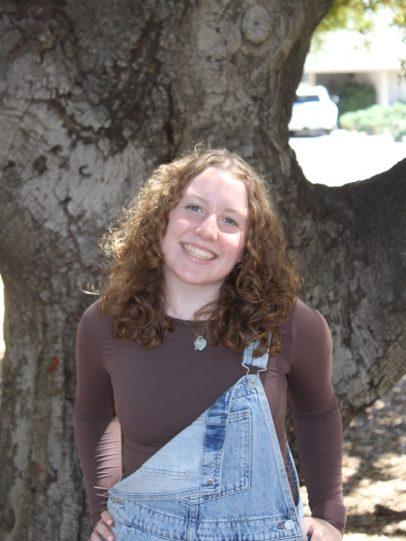Right now, in the San Marin High School library, there is a book titled “Goodbye to Berlin” by Christopher Isherwood. This book depicts the rise of fascism and the Nazi Party in 1920s and 30s Berlin. While labeled fiction, it is widely regarded as a sort of dramatized memoir, due to the protagonist being the author himself. Another character is flapper Sally Bowles, a name that may be more recognizable, as the book was later adapted into the popular musical “Cabaret,” in which Isherwood’s character is called Clifford Bradshaw. Although “Cabaret” takes place in a certain setting, it was actually written during the rise of conservatism in 1960s America to represent denial and escapism in the face of rising fascism and dictatorship. This is, unfortunately, a theme very prevalent in today’s society.
I was fortunate enough to see the Broadway revival during my time in New York this summer. Because “Cabaret” is a concept musical that primarily explores a deeper theme rather than focusing on the story, the revival was also a revisal, because it changed certain elements of the script, score, and setting. Because of this, the show was effectively revised for contemporary audiences, straying from the original storyline and ending the story differently than previous productions had.
The show was staged at the “Kit Kat Club” in the August Wilson Theater, starting its run on Apr. 24, 2024. The show itself was performed on the theater’s famous circular stage, which has three rings that can rise and rotate. Throughout the show, several moments sent chills down my spine. For example, the “punchline” the Master of Ceremonies, Emcee, delivers at the end of the song “If You Could See Her,” which depicts his love for a gorilla despite how the outside world may view their relationship, the line at the end revealing that the “gorilla” was actually a Jewish woman, and that the audience had been playing the part of anti-semitic citizens of Berlin in the 30s.
Perhaps the moment that shocked me the most, however, was the ending of the show, as Bowles sang the title song, “Cabaret.” The entire cast came out on stage, wearing the same suit, and lined the outer edge of the stage, facing the same direction. As Bowles joined them, it became evident that every single character was onstage to represent the fact that they all contributed to the terrible events and allowed such a party to rise to power. When the stage began to move and the characters started to rotate clockwise, the message was clear: wake up. These events are repeating themselves at this very moment in time, with the rise of a new dictator.
This new dictator may not sport a recognizable mustache and his symbol may not be a swastika, but his identifiable spray tan and red cap sporting a now-common phrase should allude to some comparison.
I am not trying to shun anyone for their beliefs. However, I believe that there is much to be learned from art, specifically musical theatre, which is often political, on how to be wary of a dictator when one is created. Other examples of this would be The Wizard in “Wicked,” Hades in “Hadestown,” or Caldwell B. Cladwell in “Urinetown.”
I feel that now more than ever, we are entering the period before the main events of a musical like the ones I just mentioned. The part of the story where Dr. Dillamond, the Goat professor at the fictional school Shiz in “Wicked” is forcefully taken out of his classroom shouting about the oppression that speaking Animals are facing; the part of the story where Ernst Ludwig, the Nazi character from “Cabaret” informs Fräulein Schneider that it would be unwise to marry a Jewish man before singing “Tomorrow Belongs To Me”, which harbours Nazi overtones. The part of the story where, rather than the lowered gas prices promised to us in America, we inch closer and closer to World War III every day, and propose banning marriage for same-sex couples.
I love theatre because it is loud, fun, and freeing, but also because it helps me better articulate my thoughts and feelings, especially on tough topics. Theatre is a tool, and often the stories we tell are deeply political and relevant to the unsteady climate on which America is teetering right now. In a world where so much news is being censored, consuming art like musicals can be a beautiful way to educate oneself.
I highly recommend to all students to ingest as much theatre as you can, while you can, because the previously mentioned rising dictator has started to control theatre spaces, like the historic Kennedy Center in Washington, D.C.
Despite its popularity and relevance, the “Cabaret” revival closed after 13 months on Sept. 21, 2025, a month earlier than expected, and I honestly think that is one of the worst things that could happen right now. I urge you to listen to this musical and read the book on which it is based, which is available to all of us in our school library; you will find many similarities to our current climate.
I will leave you with this: the closing line to “Cabaret”: “There was a cabaret and there was a Master of Ceremonies / And there was a city called Berlin in a country called Germany / It was the end of the world / And I was dancing with Sally Bowles and we were both fast asleep…”

























